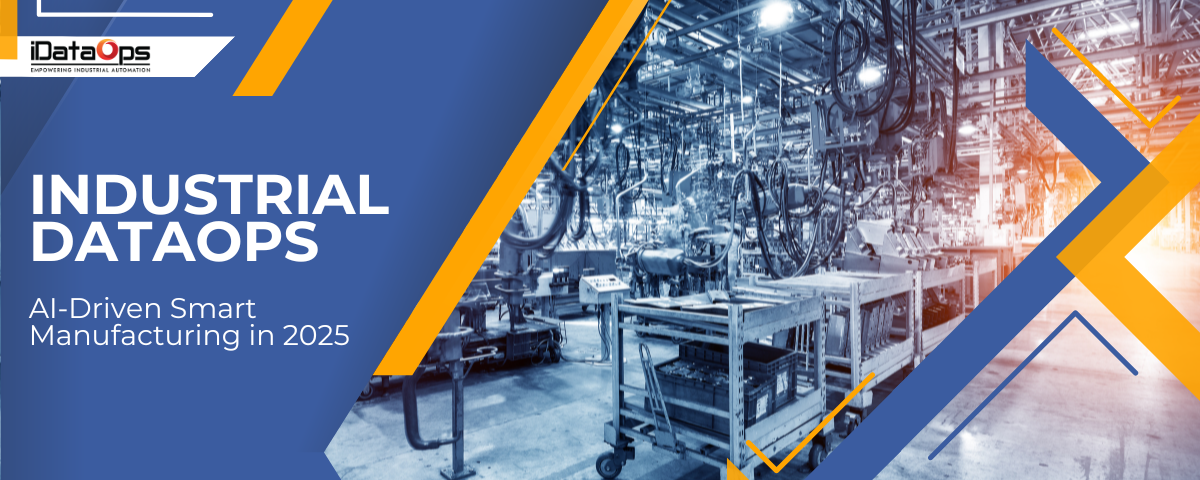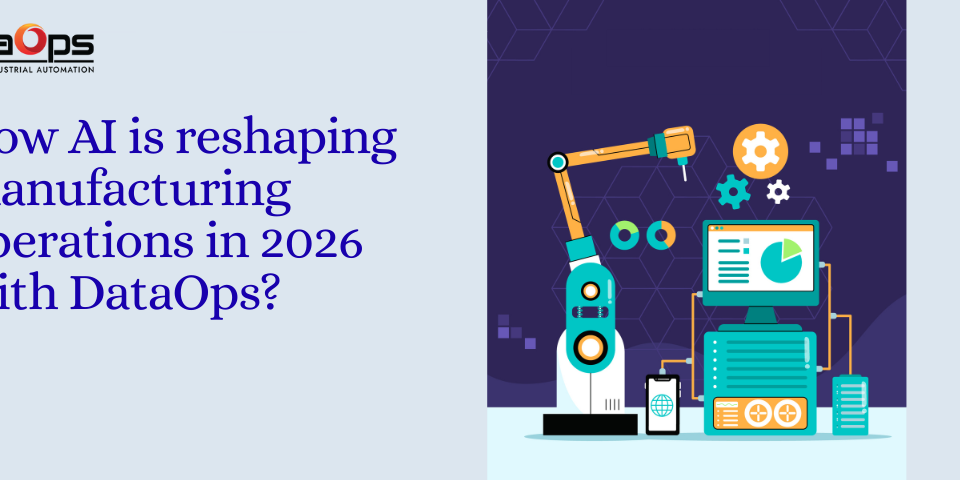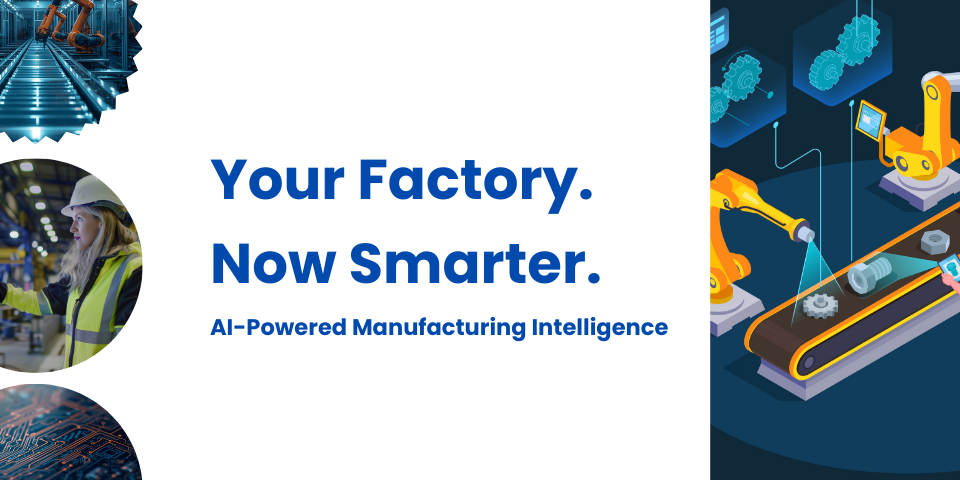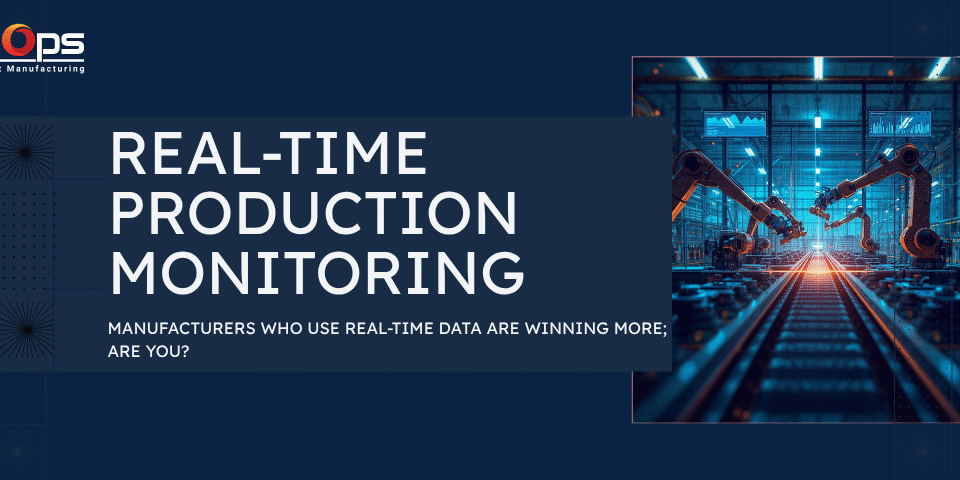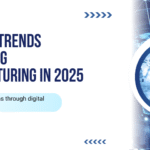
Before 2025 Ends: 5 Digital Transformation Shifts That Redefined Manufacturing As 2025 draws to a close, one thing is clear: digital transformation in manufacturing has matured. For years, it was a buzzword—an item on the strategic roadmap that always seemed a few quarters away. But this year, digital transformation finally moved from planning slides to production floors. Plants are smarter, data flows freely, and decisions that once took hours now happen in real time. The technologies themselves—AI, IoT, and cloud computing—aren’t new. What changed in 2025 is how manufacturers used them: practically, purposefully, and at scale. Here are five key digital transformation shifts that defined manufacturing in 2025—and how they’re setting the stage for what’s next. 1. Predictive Maintenance Became the New Normal Remember when predictive maintenance was more promise than practice? In 2025, that changed. With IoT sensors, edge devices, and AI models now standard in many facilities, manufacturers can continuously monitor machine health. Instead of reacting to breakdowns, they’re predicting them—sometimes weeks in advance. The result? Downtime dropped dramatically, especially in high-volume lines. Equipment life extended, thanks to proactive scheduling. Maintenance teams gained efficiency, planning work around production instead of halting it. Predictive maintenance is no longer a pilot program—it’s part of the everyday playbook, quietly saving millions in lost productivity across the industry. 2. Smart Factories Scaled Beyond Pilots In 2025, the term “smart factory” stopped meaning a single connected cell or test line. This year, manufacturers scaled digital capabilities across entire facilities—and even global operations. Digital twins, once experimental, are now core to design, simulation, and process optimization. Real-time dashboards give leaders visibility across continents. And AI-driven control systems automatically fine-tune settings for speed, quality, and energy use. The biggest success stories weren’t about tearing down legacy systems. They came from companies that integrated what they already had, connecting MES, ERP, and machine-level data into unified, data-driven networks. Smart manufacturing in 2025 wasn’t about being futuristic—it was about being efficient, flexible, and resilient. 3. Sustainability Became an Operational Metric, Not a Mission Statement Sustainability officially moved from aspiration to execution. By the end of 2025, most major manufacturers are tracking carbon, energy, and material usage as closely as they monitor production yield. Energy-management systems now feed directly into operational KPIs. Waste reduction is automated through smart materials tracking. Even procurement decisions are guided by sustainability data. Regulators, investors, and customers all demanded more transparency—and the industry responded. The companies that treated sustainability as a design constraint rather than an afterthought discovered a powerful advantage: lower costs and higher efficiency. Sustainability is now a core measure of performance, not just a section in the annual report. 4. Cloud-Connected Operations Quietly Transformed the Shop Floor If one enabler made all these changes possible, it was the cloud. In 2025, manufacturers stopped debating “cloud-first” strategies and focused on being cloud-capable—connecting people, processes, and systems in real time. From global data sharing and supplier integration to automated software updates and analytics-as-a-service, the cloud became the invisible backbone of manufacturing agility. And with hybrid architectures—edge computing on the floor, cloud analytics in the background—factories finally struck the balance between speed and scalability. This quiet shift made collaboration seamless, decisions faster, and innovations repeatable across multiple plants. 5. The Workforce Was Augmented—Not Replaced In 2025, digital transformation proved it’s not about replacing people—it’s about empowering them. Facing retirements, skills shortages, and rising complexity, manufacturers turned to digital tools to enhance human expertise. AR and wearable tech allowed operators to access real-time guidance and remote support. AI assistants offered recommendations for complex troubleshooting. And digital work instructions replaced paper manuals, helping new workers reach proficiency faster. The result? A more connected, capable, and confident workforce—where technology complements human judgment instead of replacing it. What 2025 Taught Us: Progress Is Practical The companies that thrived in 2025 weren’t the ones chasing buzzwords. They were the ones focused on making things work—across systems, across teams, and across time zones. They: Connected existing assets instead of replacing everything. Focused on data quality, not just data quantity. Made automation a support tool, not a control mechanism. Treated sustainability and resilience as part of operational excellence. The year proved that digital transformation doesn’t need to be flashy—it needs to be functional. Looking Ahead to 2026: From Connected to Autonomous As manufacturers move into 2026, the focus is shifting from connected operations to autonomous ones. AI systems will increasingly manage repetitive decisions, freeing humans to focus on innovation and improvement. But the key lesson from 2025 remains: the most advanced factories are the ones where technology and people evolve together—driven by data, guided by experience, and united by purpose.Before 2025 Ends: 5 Digital Shifts Powering the Next Era of Manufacturing
April 28, 2025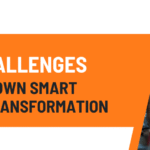
Why Smart Factory Transformation Is Slower Than It Should Be
May 29, 2025Industrial DataOps: The Backbone of AI-Driven Smart Manufacturing in 2025
You Don’t Have a Data Problem — You Have a DataOps Problem
Industrial DataOps in Smart Manufacturing!
Walk into any modern factory and you’ll find data everywhere. Machines are constantly reporting status updates. Sensors are logging environmental data. Quality systems are tracking defects. Yet, despite the ocean of information, manufacturers often struggle to answer a simple question:
“What’s happening in my plant right now — and why?”
This is where Industrial DataOps comes in.
Think of it as the nervous system of a smart factory — connecting every sensor, system, and algorithm so decisions can be made faster, smarter, and with confidence. And in 2025, it’s not just a “nice-to-have.” It’s the cornerstone of competitive manufacturing.
What’s Holding Back Smart Manufacturing?
Let’s be honest. The promise of Industry 4.0 has been around for years — but execution often lags behind.
Sound familiar?
-
Your data is stuck in legacy systems
-
Teams spend more time wrangling data than analyzing it
-
Real-time alerts come after the problem has already escalated
-
Your AI initiatives are stalled due to inconsistent or poor-quality data
It’s not your tools. It’s your data pipelines.
And without a well-orchestrated approach to managing industrial data, even the best AI model or IIoT platform won’t get you far.
What Exactly Is Industrial DataOps?
Industrial DataOps is the operational discipline of designing, building, and managing reliable, automated data flows in complex industrial environments.
It’s where DevOps principles meet manufacturing realities.
| Traditional Manufacturing Data | With Industrial DataOps |
|---|---|
| Siloed, hard to access | Unified and contextualized |
| Batch reporting | Real-time visibility |
| Manual data handling | Automated pipelines |
| Static dashboards | Predictive, AI-driven insights |
📌 Ask yourself:
Do my teams trust the data they’re seeing? Or are they second-guessing it?
If your answer is “we’re not there yet,” then DataOps is exactly where you need to focus.
How Industrial DataOps Powers Smart Manufacturing
Here’s what DataOps enables in a modern factory:
1. Real-Time Decision-Making
Whether it’s adjusting a CNC machine’s speed or identifying a faulty robot arm, real-time data availability is non-negotiable. DataOps ensures continuous data streaming from machines to analytics tools with minimal latency.
2. AI at Scale
AI only performs as well as the data feeding it. DataOps provides the clean, governed, high-velocity data that AI and machine learning models require to generate accurate, real-time predictions.
3. Data Governance & Compliance
Data integrity is critical in regulated industries (like pharma or aerospace). DataOps enforces lineage, audit trails, and secure access controls across the pipeline.
4. Breaking Down Silos
One of the most transformative outcomes is cultural. DataOps enables cross-functional collaboration — operations, IT, and data science teams finally work from a shared, trustworthy data foundation.
Real-World Scenario: From Disconnected Data to Measurable Impact
A leading global exporter, supplying major retailers like Walmart, Zara, and Target, found its growth outpacing its technology. Despite expanding operations, the company struggled with:
-
Lack of real-time visibility into production
-
Fragmented systems that made data integration a constant headache
-
Rising operational costs due to reactive maintenance
-
Spare parts delays during unplanned downtimes
These inefficiencies were limiting their ability to scale and meet customer expectations.
The Solution: A Shift to Industrial DataOps
By implementing a centralized Industrial DataOps framework, the organization:
-
Enabled real-time production monitoring across facilities
-
Automated and standardized data flows from machines to decision-makers
-
Integrated spare parts inventory with machine status for faster turnaround during downtime
The Results:
-
30% increase in machine uptime through predictive insights
-
80% reduction in manual data analysis, freeing up teams for higher-value work
-
Over $1 million saved in just one year through operational efficiency gains
This transformation wasn’t just about plugging in new software. It was about rethinking how industrial data was collected, contextualized, and used — and building a scalable system that could grow with the business.
Key Components of a Robust Industrial DataOps Strategy
- Data Ingestion: Connect to any machine, historian, cloud app, or legacy system
- Contextualization: Map raw data to plant floor logic (e.g., equipment hierarchy, production states)
- Pipelines: Automate how data flows — from ingestion to storage to analytics
- Monitoring & QA: Alerting, validation, and health checks for your pipelines
- Governance: Access control, lineage tracking, and compliance built-in
- AI Enablement: Structured data pipelines that feed ML and digital twin models
The Future: DataOps as the Digital Foundation
As more manufacturers move to hybrid architectures (edge + cloud), data volume will explode. Edge AI, 5G, and autonomous systems demand split-second responsiveness. None of this will work without a DataOps foundation.
Expect to see:
-
More plug-and-play industrial data platforms
-
Tighter integration between DataOps and MLOps
-
Adoption of low-code tools for data engineering
-
A shift from “data ownership” to data stewardship
Key Takeaways: Why Industrial DataOps Is Essential for Smart Manufacturing
-
Smart manufacturing success depends on efficient, real-time data flow — not just more sensors or systems
-
AI and machine learning require high-quality, well-governed data to deliver value
-
Industrial DataOps provides the structure and scalability to manage complex data pipelines across modern factories
-
Manufacturers embracing DataOps are seeing measurable improvements in uptime, efficiency, and decision-making speed
-
Investing in a DataOps strategy today is laying the digital foundation for tomorrow’s fully autonomous, AI-powered operations
Final Thought: Where Do You Begin?
Industrial DataOps isn’t a nice-to-have anymore — it’s the infrastructure layer that unlocks every other innovation in your digital transformation journey.
Whether you’re deploying predictive maintenance, optimizing OEE, or building digital twins, it all starts with reliable, contextualized, real-time data — and that’s what iDataOps is built to deliver.
Let’s turn your data into a competitive advantage.
Talk to us to explore how iDataOps can bring your smart manufacturing vision to life.
